
Sigulda: The Adventure Capital of Latvia
Nestled in the picturesque Gauja River Valley, Sigulda is often referred to as the 'Switzerland of Latvia' due to its stunning landscapes and vibrant outdoor activities. This quaint town, just a short drive from Riga, offers a perfect blend of natural beauty and historical allure, making it a must-visit destination for tourists seeking both adventure and tranquility. Sigulda is famed for its medieval castles, such as the Sigulda Castle and Turaida Castle. These historic landmarks provide a glimpse into the region's rich past and offer breathtaking views over the surrounding countryside. The town's charming streets and well-maintained parks add to its appeal, providing ample opportunities for leisurely strolls and picnics. For thrill-seekers, Sigulda is an outdoor paradise. The Gauja National Park offers a plethora of activities, including hiking, bobsledding, and zip-lining. The park's well-marked trails and diverse wildlife make it a haven for nature enthusiasts. During the winter months, the area transforms into a winter wonderland, perfect for skiing and snowboarding. Sigulda's vibrant culture is also worth exploring. The town hosts various festivals and events throughout the year, showcasing local music, art, and cuisine. Visitors can indulge in traditional Latvian dishes at cozy restaurants and cafes, providing a taste of the local flavor. Whether you're an adrenaline junkie, history buff, or nature lover, Sigulda has something for everyone. Its unique blend of adventure, culture, and natural beauty sets it apart as a premier tourist destination in Latvia.
Local tips in Sigulda
- Visit Turaida Castle early in the morning to avoid crowds and enjoy the serene atmosphere.
- Rent a bike to explore the scenic trails of Gauja National Park at your own pace.
- If visiting in winter, try the bobsled track for an exhilarating experience.
- Check the local event calendar to catch traditional festivals and cultural events.
- Sample local Latvian cuisine at the town's cozy restaurants for an authentic experience.
Sigulda: The Adventure Capital of Latvia
Nestled in the picturesque Gauja River Valley, Sigulda is often referred to as the 'Switzerland of Latvia' due to its stunning landscapes and vibrant outdoor activities. This quaint town, just a short drive from Riga, offers a perfect blend of natural beauty and historical allure, making it a must-visit destination for tourists seeking both adventure and tranquility. Sigulda is famed for its medieval castles, such as the Sigulda Castle and Turaida Castle. These historic landmarks provide a glimpse into the region's rich past and offer breathtaking views over the surrounding countryside. The town's charming streets and well-maintained parks add to its appeal, providing ample opportunities for leisurely strolls and picnics. For thrill-seekers, Sigulda is an outdoor paradise. The Gauja National Park offers a plethora of activities, including hiking, bobsledding, and zip-lining. The park's well-marked trails and diverse wildlife make it a haven for nature enthusiasts. During the winter months, the area transforms into a winter wonderland, perfect for skiing and snowboarding. Sigulda's vibrant culture is also worth exploring. The town hosts various festivals and events throughout the year, showcasing local music, art, and cuisine. Visitors can indulge in traditional Latvian dishes at cozy restaurants and cafes, providing a taste of the local flavor. Whether you're an adrenaline junkie, history buff, or nature lover, Sigulda has something for everyone. Its unique blend of adventure, culture, and natural beauty sets it apart as a premier tourist destination in Latvia.
When is the best time to go to Sigulda?
Iconic landmarks you can’t miss
Turaida Castle
Explore Latvia's medieval history at Turaida Castle, a beautifully restored fortress with stunning views and a rich cultural heritage.
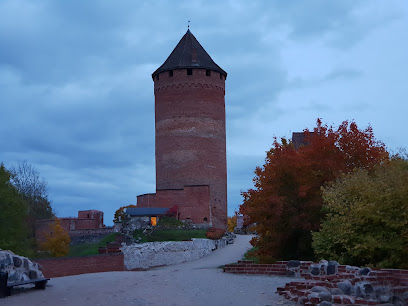
Castle Of The Livonian Order In Sigulda
Explore the medieval ruins of Sigulda's Livonian Order Castle, offering stunning views and a glimpse into Latvia's rich history.
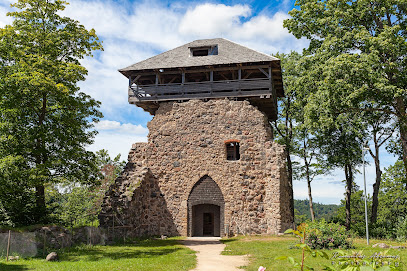
Tarzāns
Experience high-flying thrills and family fun at the Baltics' largest adventure park in the heart of Latvia's stunning Gauja Valley.
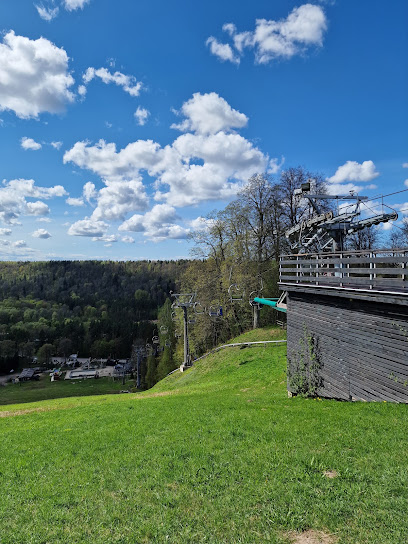
Gutman's Cave
Explore the largest cave in the Baltics, steeped in legends and etched with centuries of history, in Latvia's Gauja National Park.
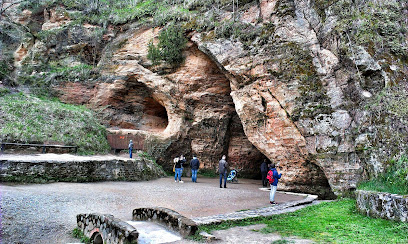
Turaida Museum Reserve
Explore Latvia's rich history and culture at Turaida Museum Reserve, featuring a medieval castle, wooden church, and scenic landscapes.
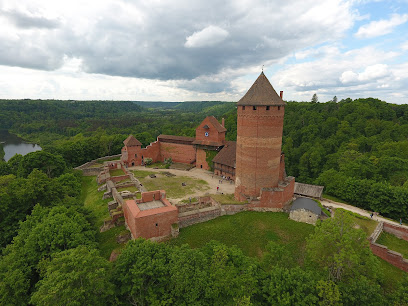
Sigulda bobsleigh, luge and skeleton track
Experience the thrill of Olympic sports at Sigulda's Bobsleigh, Luge, and Skeleton Track – a unique adventure for adrenaline seekers and sports enthusiasts.
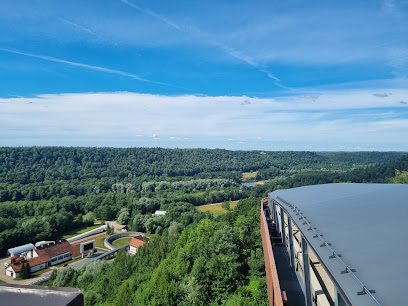
SIGULDA ADVENTURES
Experience thrilling adventures and stunning natural beauty at Sigulda Adventures in Latvia's Gauja National Park.
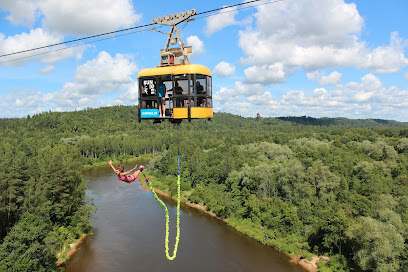
Paradise Hill
Discover the stunning panoramic views of the Gauja River Valley at Paradise Hill, Sigulda's premier observation deck and nature escape.
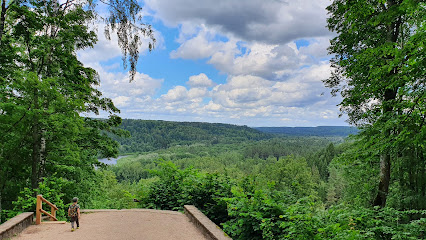
Krimuldas Muiža
Explore Krimulda Manor in Sigulda: a Neoclassical gem with rich history, scenic views & tranquil gardens in Gauja National Park.
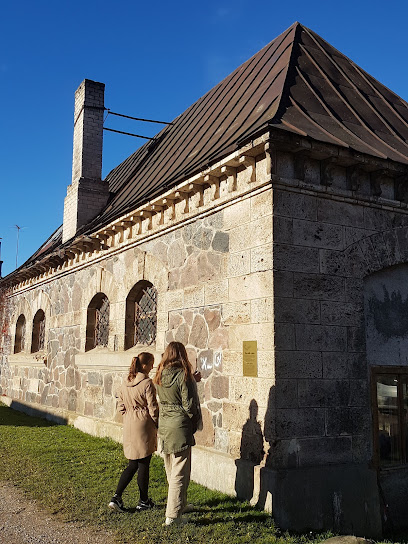
AERODIUM, Sigulda
Experience the thrill of indoor skydiving at AERODIUM in Sigulda, Latvia – an adventure like no other amidst stunning landscapes.
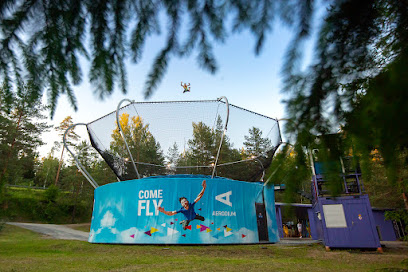
Velnalas klintis un Velna ala
Discover the mystical Devil's Cliffs and Cave in Sigulda: stunning views, ancient legends, and natural beauty await!
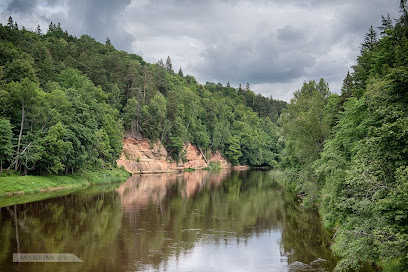
Emperor's chair
Experience breathtaking panoramic views of the Gauja River valley from the historic Emperor's Chair in Sigulda, Latvia.
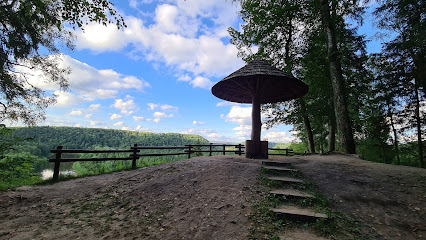
Krimulda Castle
Explore Krimulda Castle: A medieval ruin offering scenic views and a glimpse into Latvia's captivating past in Gauja National Park.
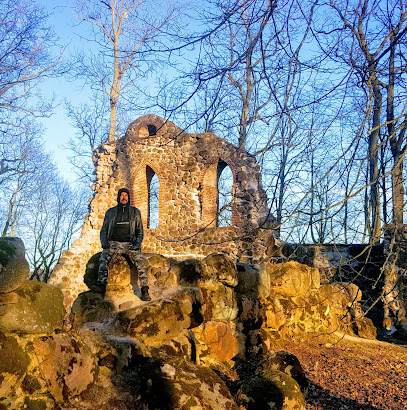
Raganu katls
Explore the mystical Raganu Katls in Sigulda, a stunning geological formation steeped in Latvian folklore and natural beauty.
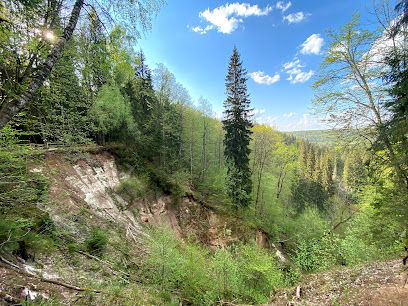
Minotaur - Labyrinth
Unleash your inner adventurer at Sigulda's Minotaur Labyrinth: a mythical maze, laser tag, and picnic fun await! Open daily 10 AM - 6 PM.
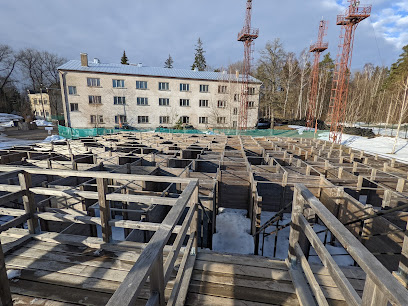
Unmissable attractions to see
Gauja National Park
Explore the enchanting beauty of Gauja National Park, Latvia's premier destination for nature lovers and adventure enthusiasts.
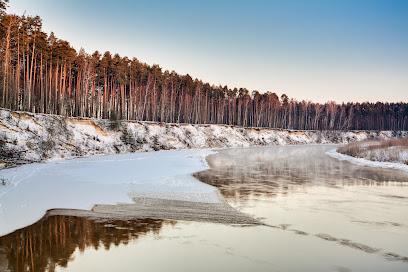
Vērmane Garden
Explore the lush beauty and cultural richness of Vērmanes Garden, Riga's oldest public park, perfect for relaxation and enjoyment.
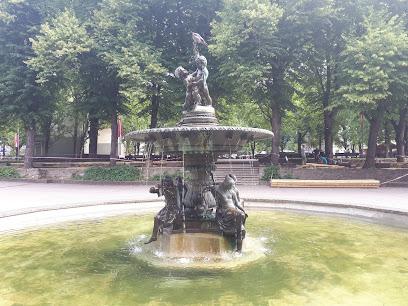
Riga Motor Museum
Explore the fascinating world of automobiles at the Riga Motor Museum - a must-visit for car enthusiasts and curious travelers alike in Latvia.
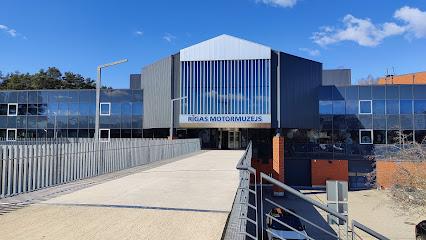
Turaida Castle
Explore Turaida Castle, a historical gem in Latvia, offering stunning views, rich history, and cultural experiences in the heart of nature.
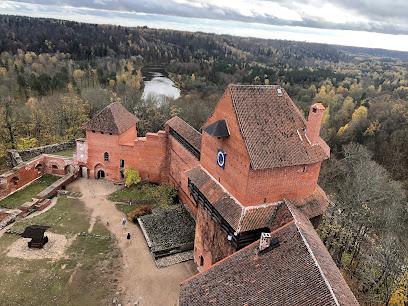
Cēsis Castle
Explore the majestic Cēsis Castle, a historic gem in Latvia offering stunning architecture, rich history, and beautiful landscapes.
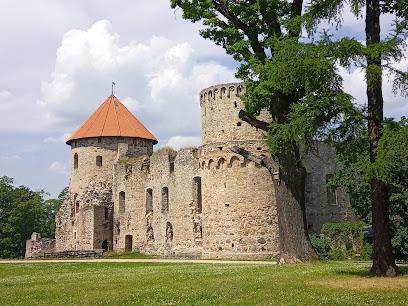
Castle Of The Livonian Order In Sigulda
Explore the historical charm of the Castle of the Livonian Order in Sigulda, where medieval architecture meets stunning natural beauty.
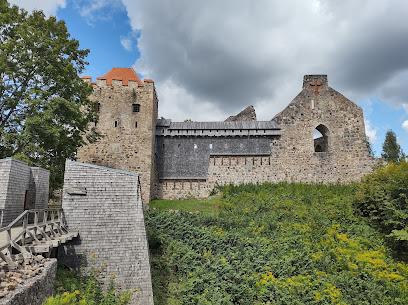
The Ethnographic Open-Air Museum of Latvia
Explore Latvia's cultural heritage at the Ethnographic Open-Air Museum, a sprawling outdoor museum showcasing the nation's traditions and history.
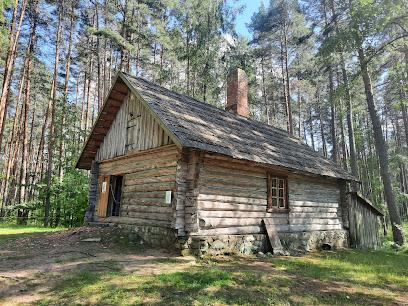
Latvian National Museum of Art
Explore the rich artistic heritage of Latvia at the Latvian National Museum of Art, a cultural treasure in the heart of Riga.
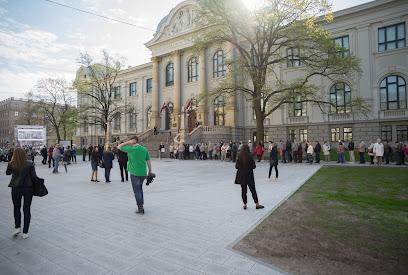
Gutman's Cave
Experience the enchanting beauty and rich history of Gutman's Cave in Sigulda, a must-visit destination for all nature lovers and adventurers.
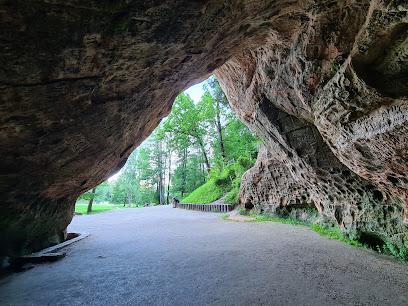
Tarzāns
Discover the excitement of Tarzāns, the premier amusement park in Sigulda, Latvia, where adventure meets breathtaking natural beauty.
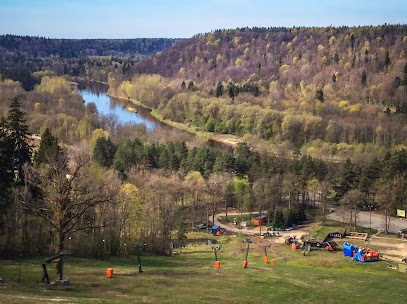
Turaida Museum Reserve
Discover the enchanting Turaida Museum Reserve, a historical treasure in Latvia showcasing medieval architecture and stunning natural landscapes.
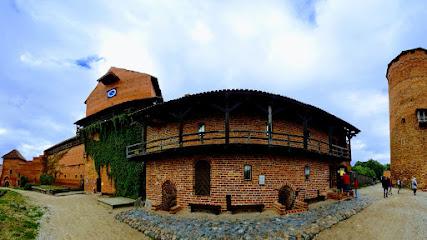
Raina Park
Discover the serenity of Raina Park in Sigulda, a picturesque destination offering lush landscapes, recreational activities, and family-friendly experiences.
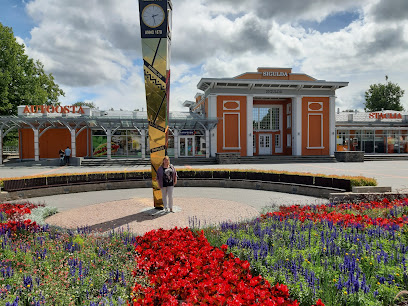
The Corner House
Discover Latvia's turbulent history at The Corner House, a museum that offers a profound insight into KGB operations and the country's struggle for freedom.
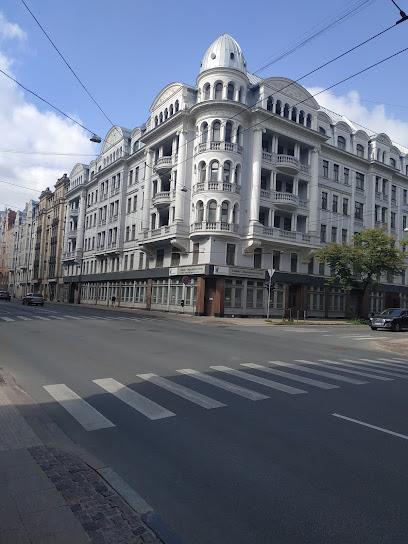
Līgatne Nature Trails
Explore Līgatne Nature Trails – a serene escape in Latvia's lush wilderness, perfect for hiking, wildlife watching, and family adventures.
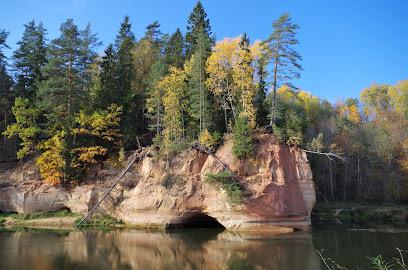
Sigulda bobsleigh, luge and skeleton track
Discover the excitement and breathtaking views at Sigulda Bobsleigh, Luge, and Skeleton Track, a premier destination for adrenaline seekers in Latvia.
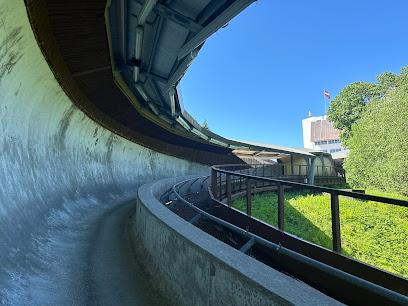
Essential places to dine
Castle Of The Livonian Order In Sigulda
Discover medieval splendor at Sigulda's Castle of the Livonian Order - a historical gem surrounded by stunning natural landscapes.
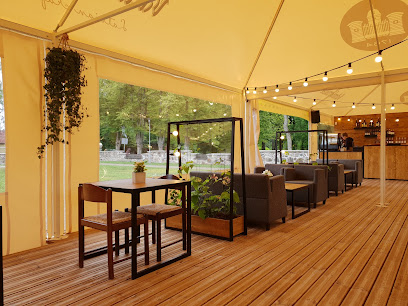
Gutman's Cave
Experience Latvia's largest cave at Gutman's Cave – a stunning natural attraction filled with folklore and breathtaking views.
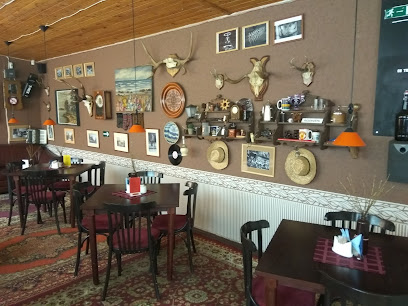
Hesburger
Savor delicious fast food at Hesburger in Sigulda - where quality meets affordability amidst Latvia's stunning landscapes.
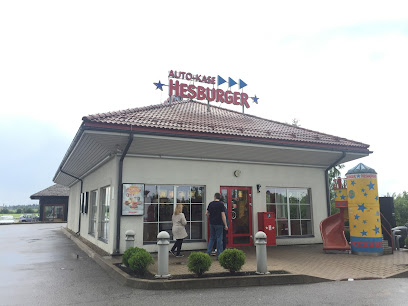
Mr. Biskvits
Discover the cozy charm of Mr. Biskvits Café in Sigulda, where delightful flavors meet warm hospitality amidst stunning landscapes.
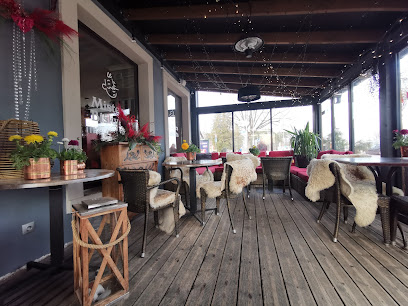
Raganas ķēķis bistro, restorāns, viesnīca
Experience authentic Latvian flavors at Raganas ķēķis bistro – where culinary tradition meets warm hospitality in beautiful Ragana.
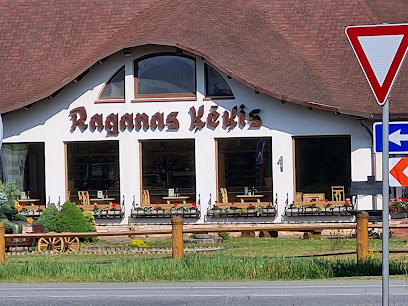
Burgers 66 Ragana
Discover delicious burgers and a family-friendly atmosphere at Burgers 66 Ragana in Latvia's picturesque Krimulda Parish.
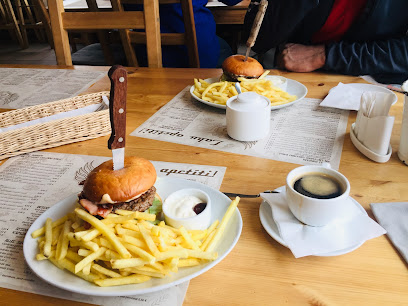
Complex Cathouse (Kaķu Māja)
Discover Complex Cathouse in Sigulda - where exquisite cuisine meets charming feline friends for an unforgettable dining experience.
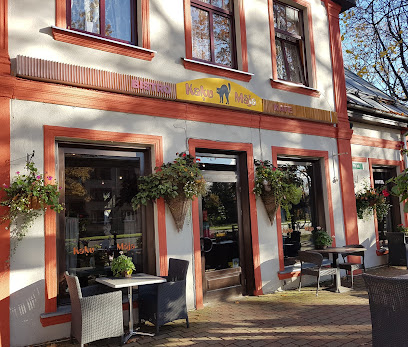
Siguldas Kebabs
Discover the irresistible taste of authentic kebabs at Siguldas Kebabs in beautiful Sigulda – where flavor meets affordability!
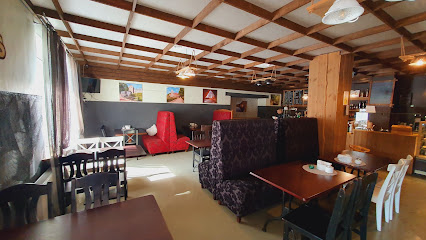
Rāmkalni Atpūtas parka BISTRO
Discover delightful Latvian cuisine at Rāmkalni Atpūtas parka BISTRO amidst breathtaking natural scenery.
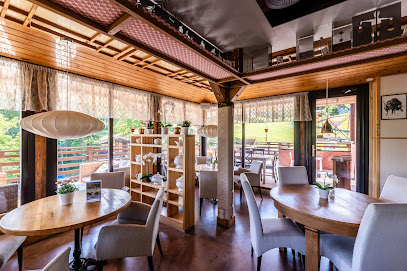
Kungu rija, restorāns
Discover authentic Latvian cuisine at Kungu Rija in Turaida - where tradition meets taste in a picturesque setting.
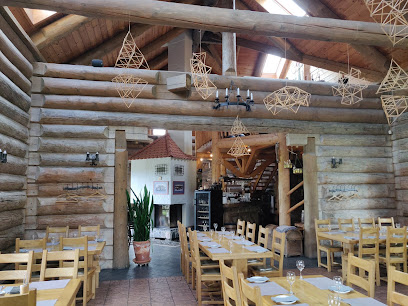
Pie Brāļa
Experience authentic Latvian cuisine at Pie Brāļa - where tradition meets taste in the heart of Sigulda.
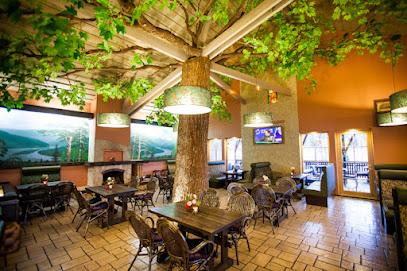
Hotel Sigulda
Discover comfort and nature at Hotel Sigulda – your gateway to adventure in Latvia's stunning landscapes.
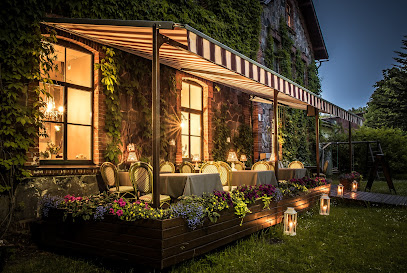
Spa Hotel Ezeri
Experience ultimate relaxation at Spa Hotel Ezeri in Sigulda Municipality, where luxury meets nature for an unforgettable getaway.
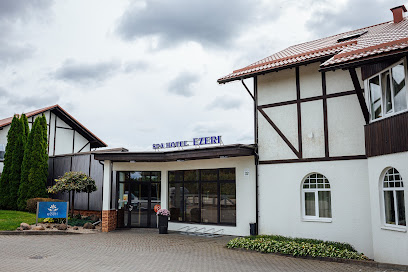
Avēnija Nr.9
Experience the flavors of Latvia at Avēnija Nr.9 - a cozy restaurant offering delightful dishes in the heart of Sigulda.
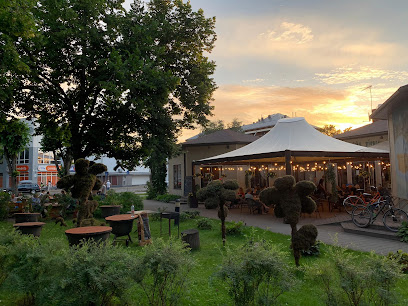
SIGULDA ADVENTURES
Discover adventure at Sigulda Adventures: bungee jumping, scenic cable car rides, and fun-filled attractions await you in Latvia's natural beauty.
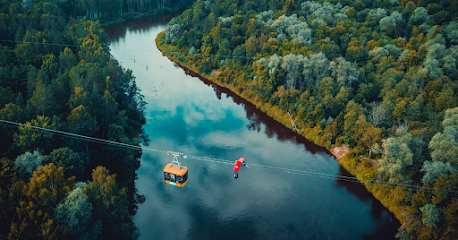
Markets, malls and hidden boutiques
Shopping center Chocolate
Discover the Chocolate Shopping Center in Sigulda, a delightful hub for shopping, dining, and unforgettable experiences in a whimsical setting.
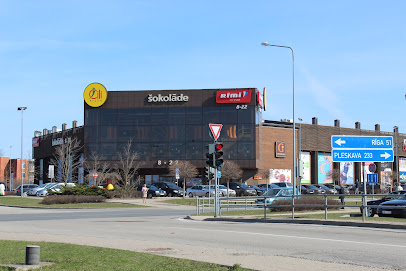
top!
Experience the local flavors at Sigulda's top supermarket, a must-visit for tourists seeking authentic Latvian products and souvenirs.
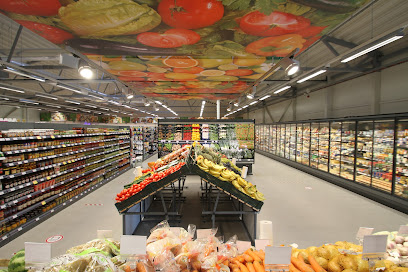
Home & Garden
Discover the charm of Sigulda at its Industrial Supermarket, offering a wide range of home and garden products in a unique shopping experience.
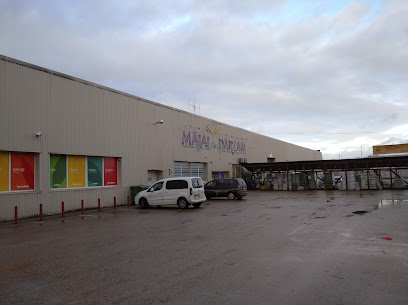
AlkOutlet Dzērieni & Vīni
Discover the finest wines and spirits at AlkOutlet Dzērieni & Vīni in Sigulda, where local flavors meet international selections.
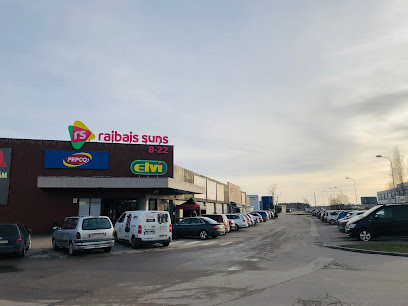
Kristine-RR , SIA
Discover the charm of Latvian fashion at Kristine-RR, SIA in Sigulda, where quality meets style in an unforgettable shopping experience.
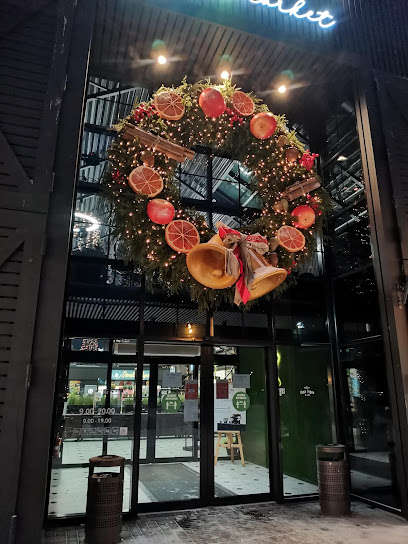
For All Tastes
Discover unique custom apparel and souvenirs at For All Tastes in Sigulda, perfect for tourists looking to express their personality.
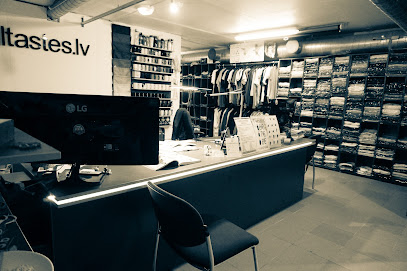
COSS SPOT VAPE SHOP SIGULDA
Explore the vibrant vaping culture at Coss Spot Vape Shop in Sigulda, offering a diverse selection of products and a friendly atmosphere for enthusiasts.
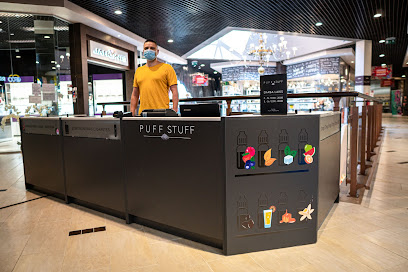
Latvijas Pērles - Sigulda
Explore Latvijas Pērles in Sigulda for authentic Latvian souvenirs that celebrate culture and craftsmanship.
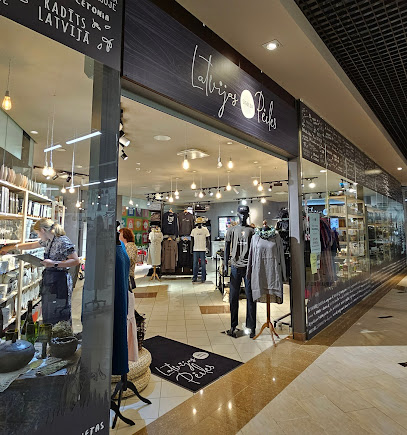
AlkOutlet dzērieni & vīni
Explore the vibrant beverage selection at AlkOutlet in Sigulda, where local wines and drinks await to tantalize your taste buds.
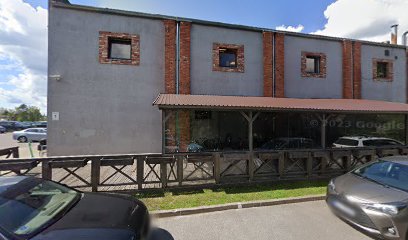
WhiteChew Sigulda T/C Šokolāde
Experience the finest handcrafted chocolates at WhiteChew Sigulda, where every sweet delight is made with love and passion in the heart of Sigulda.
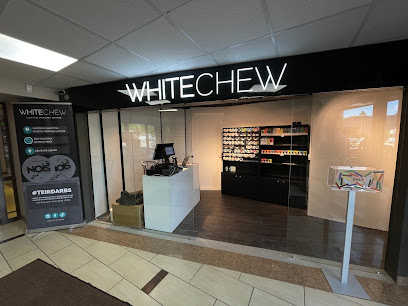
Ādas Artelis
Explore the finest handcrafted leather goods at Ādas Artelis in Sigulda, where tradition meets artistry in every unique piece.
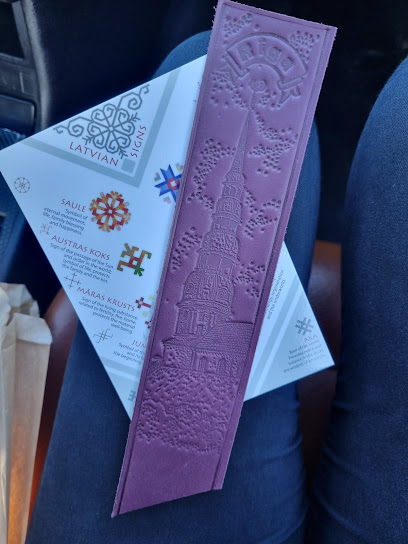
Annas labumi
Discover authentic Latvian craftsmanship at Annas Labumi in Sigulda, a treasure trove of unique local products and gifts.
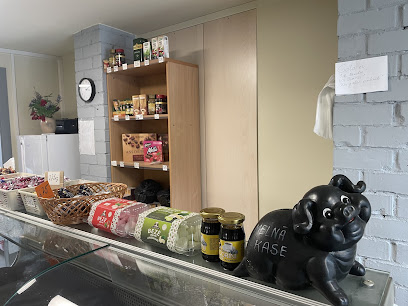
Jā Vai Nē ?
Experience the stylish blend of local culture and contemporary fashion at Jā Vai Nē ?, a must-visit clothing store in Sigulda.
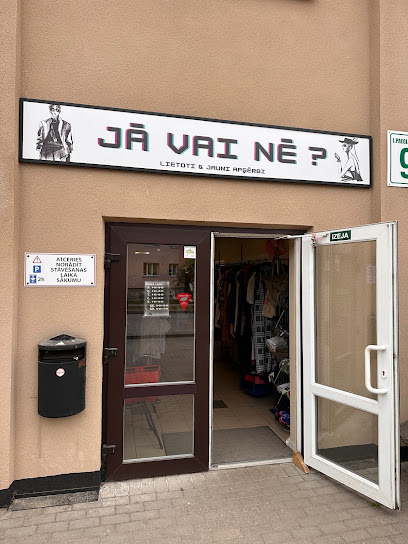
S&R apģērbi un apavi
Explore fashionable women's clothing and stylish footwear at S&R apģērbi un apavi, a premier shopping destination in Sigulda.
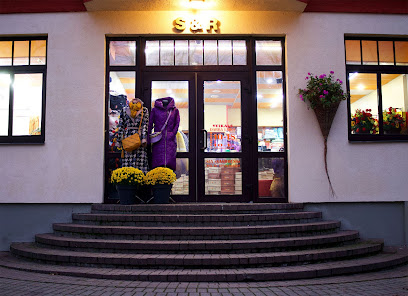
Keramikas darbnīca
Explore the artistry of ceramics at Keramikas darbnīca, a unique pottery store in Sigulda, Latvia, where creativity comes to life.
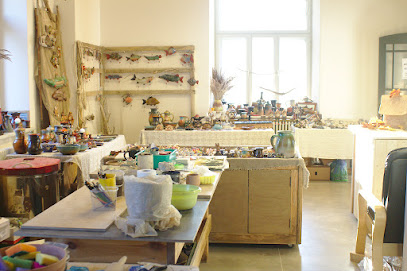
Essential bars & hidden hideouts
Mr. Biskvits
Discover the delightful flavors of Latvia at Mr. Biskvits, a charming café in Sigulda offering exquisite pastries and a cozy ambiance.
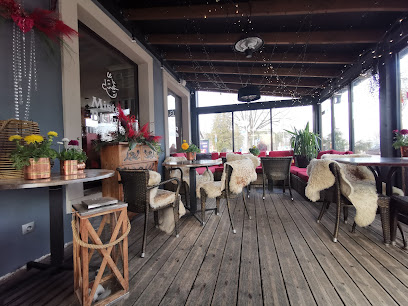
Complex Cathouse (Kaķu Māja)
Discover the charm of Complex Cathouse in Sigulda, where delicious food and playful cats create a unique dining experience.
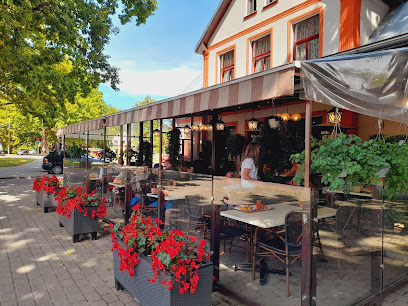
Siguldas Kebabs
Experience the best of Latvian kebab cuisine at Siguldas Kebabs, where flavor meets affordability in a cozy pub atmosphere.
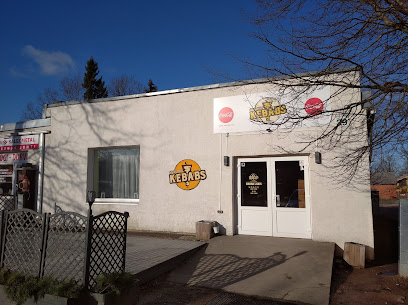
Kungu rija, restorāns
Experience authentic Latvian cuisine at Kungu Rija, a charming restaurant in Turaida surrounded by stunning landscapes and rich culture.
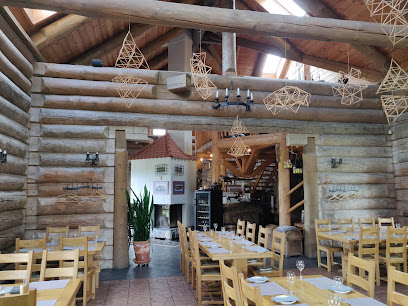
Avēnija Nr.9
Experience the heart of Latvian cuisine at Avēnija Nr.9 in Sigulda, where tradition meets contemporary dining in a charming atmosphere.
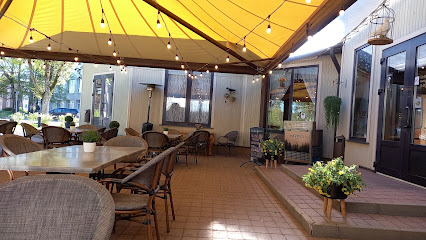
Doma
Discover the delightful flavors of Latvia at Doma Cafe in Sigulda, where cozy ambiance meets exceptional cuisine.
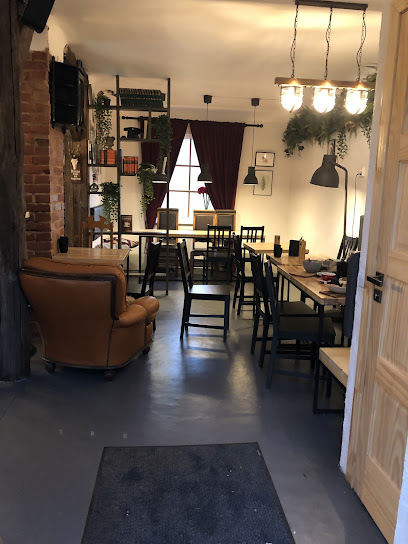
Viesnīca un restorāns Aparjods
Experience the best of Latvian cuisine and hospitality at Viesnīca un restorāns Aparjods in beautiful Sigulda.
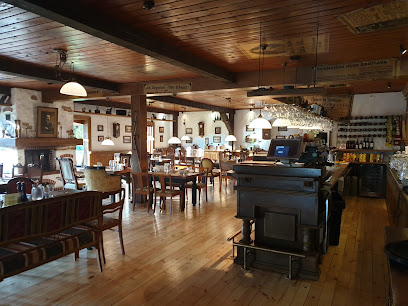
KEBAB FACTORY SIGULDA
Discover the taste of authentic kebabs at Kebab Factory Sigulda, where culinary traditions meet modern dining in the heart of Latvia.
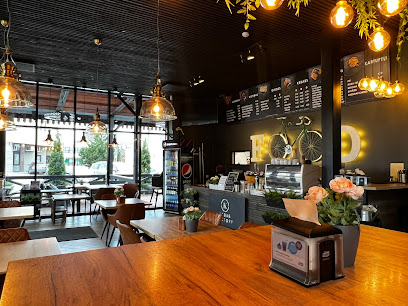
Siguldas Ezītis miglā
Experience the flavors of Latvia at Siguldas Ezītis Miglā, a delightful restaurant in Sigulda offering local cuisine in a cozy ambiance.
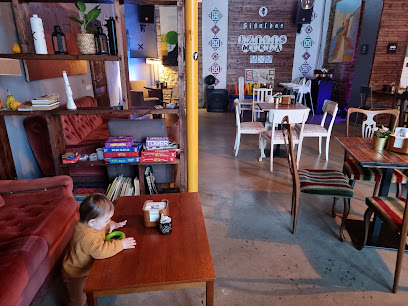
ValhallaloungeSigulda
Valhallalounge Sigulda: A lively cocktail bar with a vibrant atmosphere and pool hall, perfect for an unforgettable night in the heart of Sigulda.
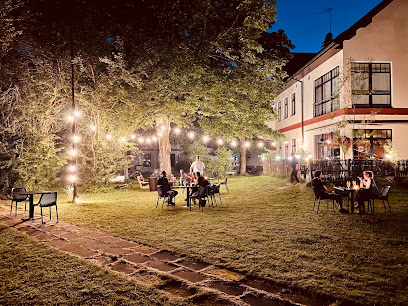
Gastro grilbārs KOKOS
Discover the culinary gem of Sigulda at Gastro grilbārs KOKOS, where delicious pizzas and a vibrant atmosphere await every visitor.
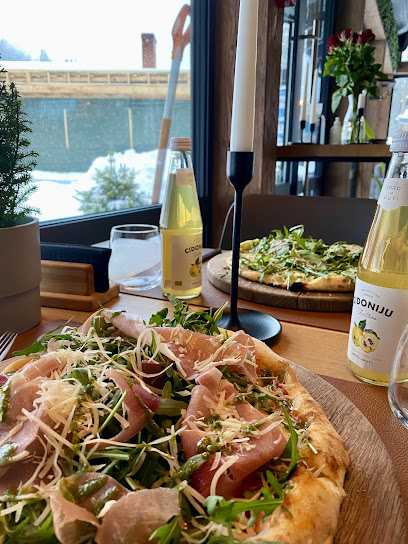
Kussh Brewery, alus darītava - krogs
Discover the art of brewing at Kussh Brewery in Sigulda, where craft beer meets local culture in a cozy setting.
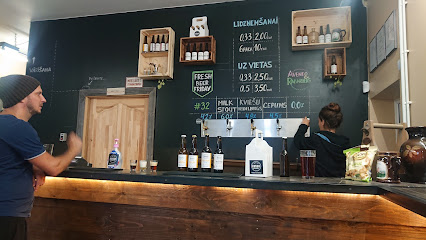
Restorāns Karbonāde XXL
Discover hearty meals and local flavors at Restorāns Karbonāde XXL in the scenic Sigulda region, perfect for tourists seeking culinary experiences.
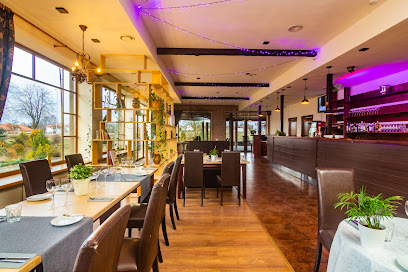
Pasēdnīca
Discover Pasēdnīca, a cozy bistro in Sigulda offering a delightful array of local and international dishes in a charming setting.
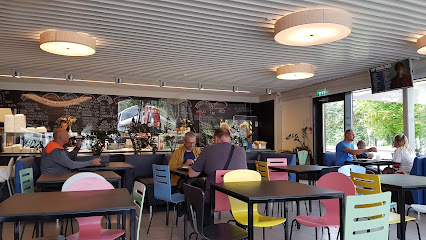
Travel experiences inspired by this city
Explore more travel diariesLocal Phrases
-
- HelloSveiki
[svay-kee] - GoodbyeUz redzēšanos
[ooz rehd-zay-shah-nohs] - YesJā
[yah] - NoNē
[nay] - Please/You're welcomeLūdzu
[loo-dzoo] - Thank youPaldies
[pahl-dyehs] - Excuse me/SorryAtvainojiet
[aht-vai-noh-yet] - How are you?Kā jums klājas?
[kah yooms klah-yahs] - Fine. And you?Labi. Un jums?
[lah-bee oon yooms] - Do you speak English?Vai jūs runājat angļu valodā?
[vy yoos roo-nah-yat ahng-loo vah-loh-dah] - I don't understandEs nesaprotu
[ehs ne-sah-proh-too]
- HelloSveiki
-
- I'd like to see the menu, pleaseEs vēlētos redzēt ēdienkarti, lūdzu
[ehs vay-leh-tohs rehd-zayt eh-dyehn-kahr-tee, loo-dzoo] - I don't eat meatEs nēēdu gaļu
[ehs nay-ay-doo gah-loo] - Cheers!Priekā!
[pree-eh-kah] - I would like to pay, pleaseEs vēlētos samaksāt, lūdzu
[ehs vay-leh-tohs sah-mah-k-saht, loo-dzoo]
- I'd like to see the menu, pleaseEs vēlētos redzēt ēdienkarti, lūdzu
-
- Help!Palīdzība!
[pah-lee-dzee-bah] - Go away!Aiziet prom!
[ai-zee-et prohm] - Call the Police!Zvaniet policiju!
[zvah-nyet pah-lee-tsee-yoo] - Call a doctor!Zvaniet ārstu!
[zvah-nyet ahr-stoo] - I'm lostEs esmu pazudis/pazudusi
[ehs ehs-moo pah-zoo-dees/pah-zoo-doo-see] - I'm illMan ir slimība
[mahn eer sleem-ee-bah]
- Help!Palīdzība!
-
- I'd like to buy...Es vēlētos iegādāties...
[ehs vay-leh-tohs yeh-gah-dah-tyes] - I'm just lookingEs tikai skatos
[ehs tee-kai skah-tohs] - How much is it?Cik tas maksā?
[tsik tahs mahk-sah] - That's too expensiveTas ir pārāk dārgi
[tahs eer pah-rahk dahr-gi] - Can you lower the price?Vai jūs varat samazināt cenu?
[vy yoos vah-raht sah-mah-zee-naht tseh-noo]
- I'd like to buy...Es vēlētos iegādāties...
-
- What time is it?Cik ir pulkstenis?
[tsik eer poolk-steh-nees] - It's one o'clockIr viens pulkstenis
[eer vee-ehns poolk-steh-nees] - Half past (10)Pusdesmit
[poos-deh-smeet] - MorningRīts
[reet] - AfternoonPēcpusdiena
[pehch-poos-dyeh-nah] - EveningVakars
[vah-kahrs] - YesterdayVakar
[vah-kahr] - TodayŠodien
[shoh-dyehn] - TomorrowRīt
[reet] - 1viens
[vee-ehns] - 2divi
[dee-vee] - 3trīs
[trees] - 4četri
[cheh-tree] - 5pieci
[pee-eh-tsee] - 6seši
[seh-shee] - 7septiņi
[sehp-tee-nyee] - 8astoņi
[ahs-toh-nyee] - 9deviņi
[deh-vee-nyee] - 10desmit
[dehs-meet]
- What time is it?Cik ir pulkstenis?
-
- Where's a/the...?Kur ir...?
[koor eer] - What's the address?Kāda ir adrese?
[kah-dah eer ah-dreh-seh] - Can you show me (on the map)?Vai jūs varat mani parādīt (uz kartes)?
[vy yoos vah-raht mah-nee pah-rah-deet oos kahr-tehs] - When's the next (bus)?Kad ir nākamais (autobuss)?
[kahd eer nah-kah-my-ees ow-toh-boos] - A ticket (to ....)Biļete (uz ....)
[bee-lyeh-teh oos]
- Where's a/the...?Kur ir...?
History of Sigulda
-
Sigulda's origins date back to the early 13th century when it was established by the Livonian Brothers of the Sword, a military order that built the original Sigulda Castle in 1207. The castle served both as a fortification and administrative center, marking Sigulda as a significant location in the region.
-
Throughout the Middle Ages, Sigulda was a crucial point of defense and trade within the Livonian Confederation. The town's strategic location along the Gauja River facilitated commerce and military operations, making it a contested site among various regional powers, including the Livonian Order and the Archbishops of Riga.
-
During the Livonian War (1558-1583), Sigulda became a battleground for competing forces, including the Tsardom of Russia, Poland-Lithuania, and Sweden. The conflict led to significant destruction in the region, including damage to the original Sigulda Castle. The war marked the end of the Livonian Order's control and ushered in a new era of foreign rule.
-
In the late 16th and early 17th centuries, Sigulda came under Swedish rule following the Treaty of Altmark in 1629. This period saw the reconstruction and fortification of the region. However, Sigulda was later ceded to Poland-Lithuania under the Treaty of Oliva in 1660, marking another chapter in its diverse history of rule.
-
The 19th century brought significant changes to Sigulda with the construction of the Riga-Pskov railway in 1889. This development transformed Sigulda into a popular resort town, attracting visitors drawn to its picturesque landscapes and historical sites. The era also saw the construction of the New Sigulda Castle by Prince Kropotkin, adding to the town's architectural heritage.
-
Sigulda faced turmoil during both World War I and World War II, with occupation and battles impacting the local community and infrastructure. Following World War II, Sigulda was incorporated into the Soviet Union, leading to further changes in its socio-political landscape. The Soviet era saw the development of local industry and tourism, albeit under a different ideological framework.
-
Since Latvia regained independence in 1991, Sigulda has flourished as a cultural and historical hub. The town has invested in preserving its rich heritage, restoring historical sites like the Medieval Sigulda Castle and promoting tourism. Today, Sigulda is known for its vibrant cultural events, adventure sports, and as a gateway to the Gauja National Park.
Sigulda Essentials
-
Sigulda is approximately 50 kilometers northeast of Riga, the capital of Latvia. The most convenient way to get there is by train, with regular services operating from Riga Central Station to Sigulda Station. The journey takes about an hour and provides scenic views of the Latvian countryside. Alternatively, you can take a bus from Riga International Bus Station, which also takes around an hour. For those preferring to drive, rental cars are available in Riga, and the drive to Sigulda is straightforward via the A2 highway.
-
Sigulda is a small town, making it easy to navigate on foot. For longer distances, local buses are available and operate regularly within the town and to nearby attractions. Taxis are also an option and can be hailed on the street or booked via phone. Biking is a popular mode of transportation, with several rental shops available. During the winter, ski lifts and rental services are available for those looking to hit the slopes.
-
The official currency in Latvia is the Euro (EUR). Credit and debit cards are widely accepted in hotels, restaurants, and most shops in Sigulda. However, it is advisable to carry some cash for smaller establishments and market purchases. ATMs are readily available throughout the town for cash withdrawals.
-
Sigulda is generally a safe destination for tourists. Standard safety precautions such as not leaving belongings unattended and avoiding poorly lit areas at night are recommended. There are no specific high-crime areas targeting tourists in Sigulda, but it is always best to stay vigilant and aware of your surroundings.
-
In case of emergency, dial 112, the general emergency number in Latvia. There is a local police station and medical facilities in Sigulda. It is advisable to have travel insurance that covers medical emergencies. Pharmacies are available for minor health issues and over-the-counter medications.
-
Fashion: Do dress comfortably and appropriately for outdoor activities. Don't wear overly revealing clothing, especially when visiting religious sites. Religion: Do respect local customs and traditions. Public Transport: Do be courteous and offer your seat to elderly passengers. Don't eat or drink on public transport. Greetings: Do greet people with a friendly 'Labdien' (Good day). Handshakes are common. Eating & Drinking: Do try local dishes and accept food graciously. Don't refuse hospitality, as it is considered impolite.
-
To experience Sigulda like a local, visit the Sigulda market for fresh produce and local goods. Engage with locals, who are often friendly and willing to share stories about the town's history and culture. Don't miss the Sigulda Castle and the nearby Turaida Museum Reserve. For a unique experience, try the Sigulda Bobsleigh and Luge Track, which offers thrilling rides in both summer and winter.
Trending Landmark in Sigulda
-
Turaida Castle
-
Castle Of The Livonian Order In Sigulda
-
Tarzāns
-
Gutman's Cave
-
Turaida Museum Reserve
-
Sigulda bobsleigh, luge and skeleton track
-
SIGULDA ADVENTURES
-
Paradise Hill
-
Krimuldas Muiža
-
AERODIUM, Sigulda
-
Velnalas klintis un Velna ala
-
Emperor's chair
-
Krimulda Castle
-
Raganu katls
-
Minotaur - Labyrinth
Nearby Cities to Sigulda
-
Things To Do in Cesis
-
Things To Do in Riga
-
Things To Do in Jurmala
-
Things To Do in Valga
-
Things To Do in Talsi
-
Things To Do in Pärnu
-
Things To Do in Viljandi
-
Things To Do in Võru
-
Things To Do in Panevėžys
-
Things To Do in Šiauliai
-
Things To Do in Daugavpils
-
Things To Do in Tartu
-
Things To Do in Kuldiga
-
Things To Do in Kuressaare
-
Things To Do in Utena












